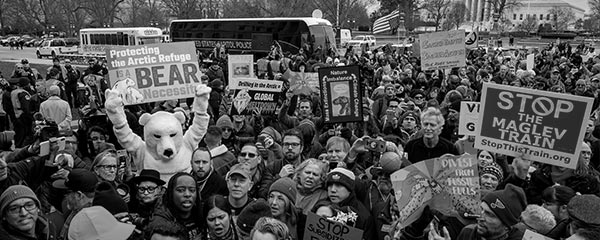Story Highlights
- Two-thirds of Americans support COVID relief money for local news
- Half are concerned about impact of economic downturn on local news
- Americans no more likely than pre-COVID to see local news as public good
WASHINGTON, D.C. -- The economic slowdown affecting the U.S. is worsening an already perilous financial situation for local news organizations, especially local newspapers. While Americans are not overly concerned about the effect of the downturn on local news in their area, they do support financial assistance for local news organizations as part of COVID-19 relief legislation. At a time when Americans are paying increased attention to local news and acknowledge its importance in providing information in a time of crisis, they are unlikely to indicate a willingness to personally pay for news if they are not currently doing so. They are also no more likely than a year ago to view local news as a public good that should be supported, even if it can't sustain itself financially.
These results are from an April 14-20 Gallup/Knight Foundation survey focused on the coronavirus situation, part of Knight Foundation's Trust, Media and Democracy initiative.
Americans Favor Local News Financial Assistance
Americans support directing federal money to local news organizations as part of coronavirus relief efforts, something that has bipartisan congressional support. Sixty-five percent are in favor of including money to help local news organizations in coronavirus relief aid, while 34% are opposed. Eighty-seven percent of Democrats, 60% of independents and 43% of Republicans favor federal assistance to local news organizations.
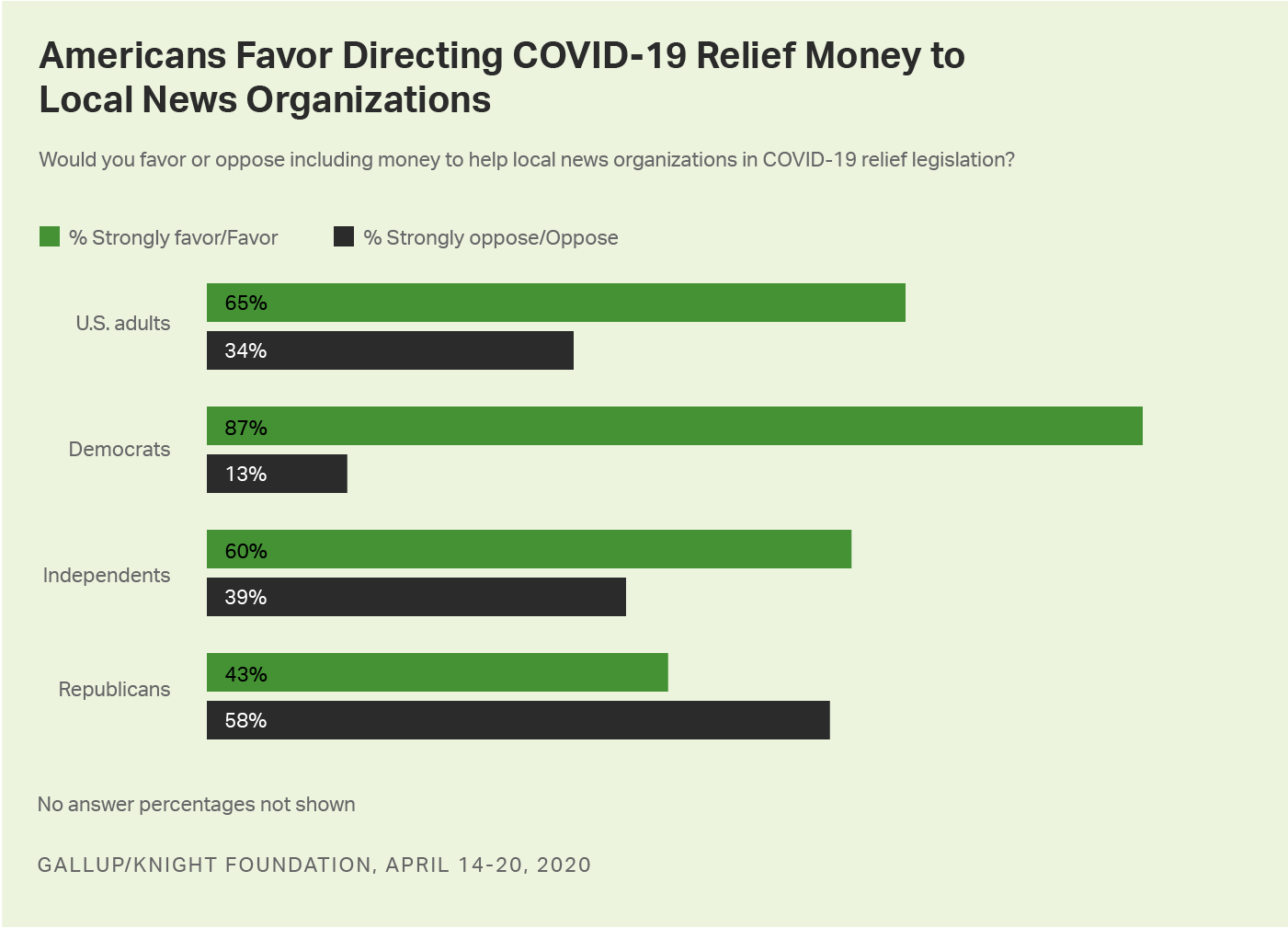
However, funding local news is a much lower priority for Americans than providing support for local businesses or individuals affected by the coronavirus situation. When asked how they would allocate a hypothetical $10 million of government relief to their local community among four possible groups, on average, they would give 40% to local residents who lost their job, 34% to local stores/restaurants/businesses, 17% to local charities and 9% to local news organizations.
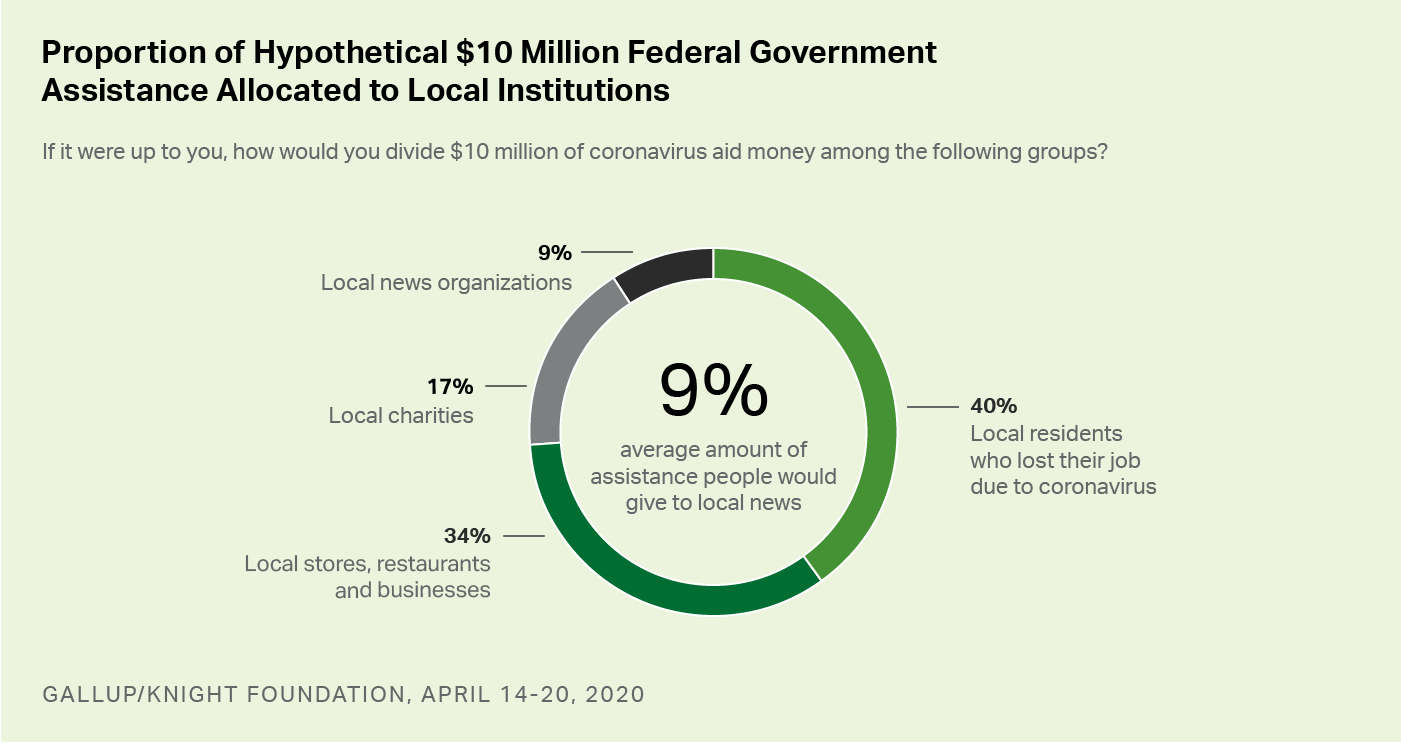
Although 9% is a small proportion to devote to local news, the fact that Americans are willing to support it on any level could be seen as a positive sign -- especially considering the other competing needs in one's community and the amount of money needed to adequately address those.
As might be expected, those who say they favor devoting some COVID-19 relief funds to local news organizations are willing to dedicate a higher proportion of the hypothetical $10 million to local news organizations (11%, on average) than are those who oppose such efforts (3%, on average).
Local News Financial Plight
About half of Americans say they are very (14%) or moderately (35%) concerned that news organizations in their local area will be harmed by the financial downturn. Concern is greater among those who pay a great deal of attention to local news, who currently subscribe to a local news source, who indicate a strong attachment to their local community, and who have a positive opinion of the news media, generally.
Concern also differs greatly by political party identification -- 66% of Democrats, 45% of independents and 30% of Republicans are very or moderately concerned.
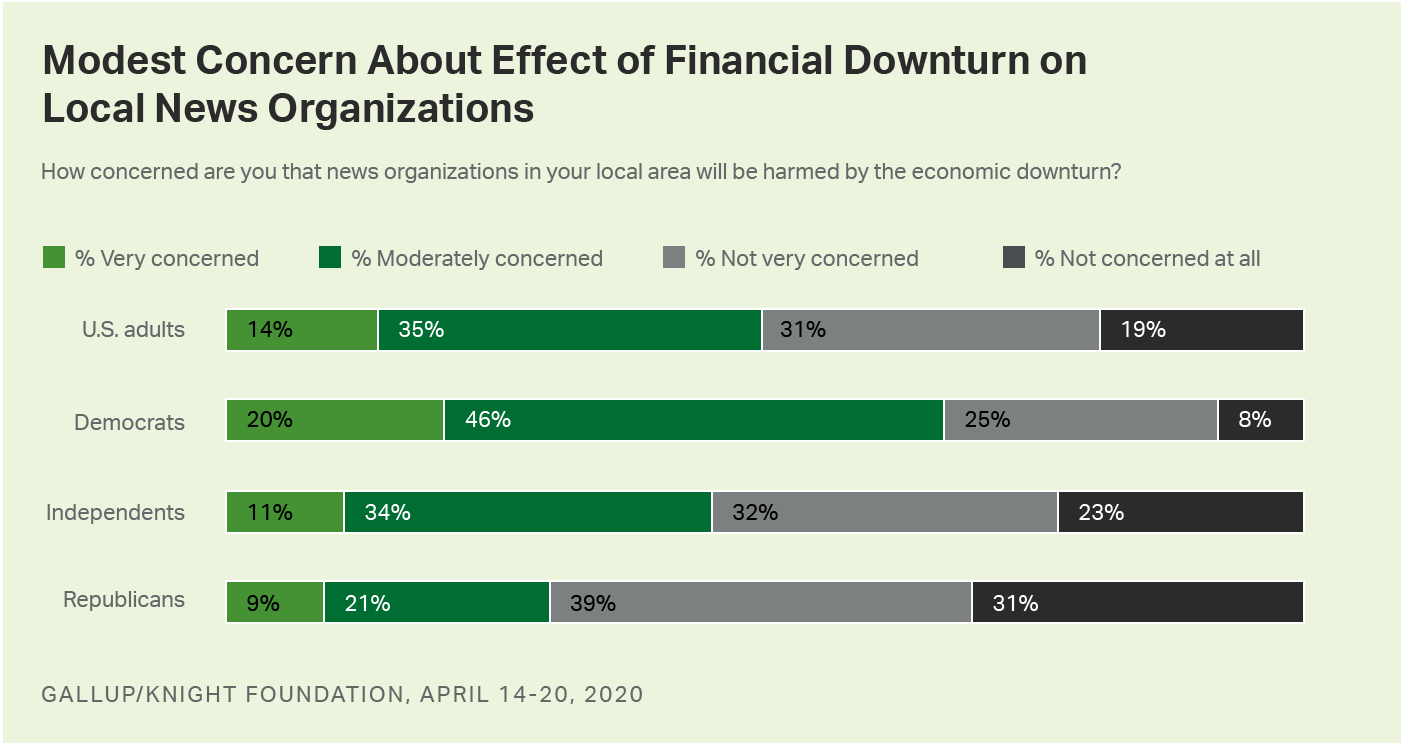
The coronavirus situation -- and the resulting increase in news attention -- has not prompted a shift in Americans' attitudes about whether local news constitutes a public good that should be funded for the benefit of the community. They remain divided on whether local newspapers should be viewed as any other business that should be allowed to fail if it can't sustain itself financially, or as a vital resource that should be preserved.
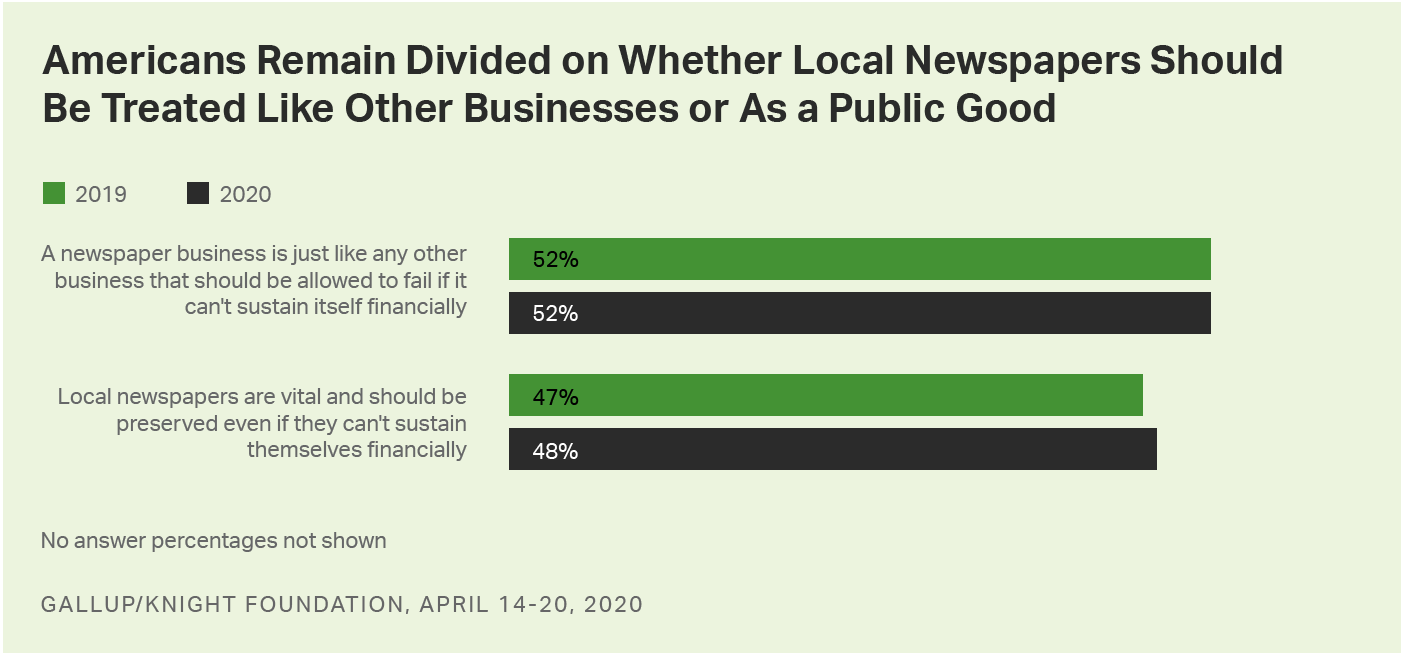
The division occurs largely along party lines: 73% of Democrats, versus 18% of Republicans, view local newspapers as vital institutions that should be preserved even if they can't sustain themselves financially. Forty-two percent of independents agree.
The coronavirus situation also has not encouraged Americans to personally pay for local news. Twenty-eight percent of those surveyed say they currently subscribe to, donate to or otherwise personally pay for local news. Among those who do not, just 13% say they are likely to pay for local news in some fashion in the coming year, with only 2% saying they are "very likely" to do so.
Implications
The coronavirus situation provided the local news sector with an opportunity to convince the public of the vital role it can play in shepherding them through a crisis, something Americans largely acknowledge. But other than support for perhaps limited federal assistance for local news, the public does not appear willing to personally pay for local news coverage in the future, or more willing than in the past to fund it like public goods such as parks, libraries or roads.




